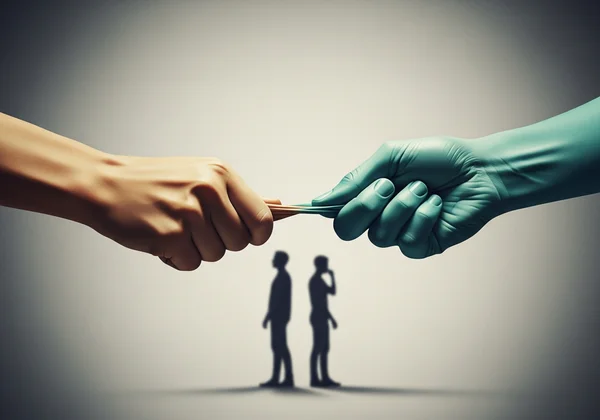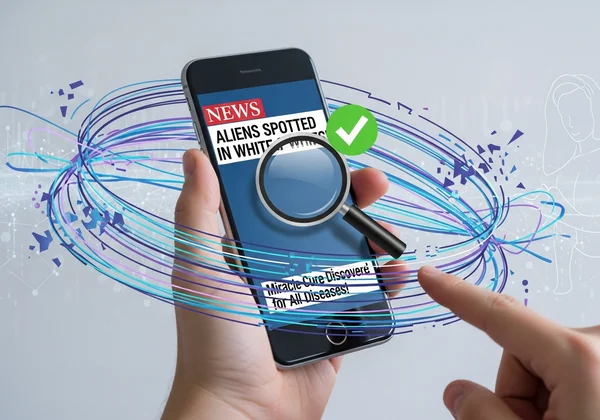Moral Test Guide: Navigating Personal Ethical Dilemmas and Choices
November 13, 2025 | By Julian Croft
We all face them. The small, nagging questions and the big, life-altering decisions that pull us in different directions. Do you tell a friend a hard truth they need to hear, or do you preserve their feelings? Do you share that viral post, or do you pause to check its authenticity? These are not just abstract philosophical problems; they are the fabric of our daily lives, the moments that define our character. Navigating these crossroads requires a strong internal guide—an ethical compass. But how do I figure out my morals and values?
Understanding your ethical core is the first step toward living a more authentic and intentional life. It transforms difficult choices from sources of anxiety into opportunities for growth. A well-calibrated moral compass doesn't just tell you what is "right" or "wrong"; it helps you understand why you feel a certain way, aligning your actions with your deepest principles. Tools like a moral test can provide invaluable insights, offering a clear map of your ethical landscape. This guide will explore common personal dilemmas and provide frameworks to help you find your way, empowering you to make choices that resonate with who you truly are. To begin your journey of self-discovery, you can explore your values with a structured assessment.

Ethical Dilemmas in Relationships: Understanding Your Moral Values
Our most meaningful connections are often where our most complex ethical challenges arise. The bonds we share with friends, family, and partners are built on a delicate balance of trust, honesty, and loyalty, and navigating these dynamics requires constant moral awareness.
Navigating Loyalty vs. Honesty
Imagine your best friend is in a new relationship, and you see clear red flags that they are blind to. Loyalty might compel you to stay silent and supportive, while honesty demands that you speak up, potentially hurting their feelings and risking your friendship. This classic dilemma pits two positive values against each other. There is no easy answer, but reflecting on your core principles can offer clarity. Do you prioritize unconditional support, or do you believe true friendship involves protective honesty? Considering the potential long-term consequences of each action can help you decide which path aligns more closely with your fundamental moral values.

Setting Ethical Boundaries
Family dynamics often come with a web of unspoken expectations and obligations. You may be asked for a loan you know won't be repaid or pressured to attend a gathering that compromises your well-being. Setting boundaries is an ethical act of self-preservation and respect. It involves communicating your limits clearly and compassionately, even when it disappoints others. This dilemma challenges you to balance familial duty with your personal integrity and mental health. Establishing these boundaries is not selfish; it’s a crucial part of maintaining healthy, respectful relationships built on mutual understanding, not just obligation.
Social Media Ethics: Responsibilities in the Digital Age
In our hyper-connected world, our ethical responsibilities extend into the digital realm. Every like, share, and comment contributes to a larger conversation, and our online actions have real-world consequences. Navigating this space requires a new kind of ethical mindfulness.
The Dilemma of Online Privacy
You capture a wonderful group photo at a party, and one of your friends looks fantastic. You’re excited to post it, but another friend in the background asked you not to share photos of them online. This scenario highlights the tension between public sharing and personal privacy. The ease of posting can make us forget that we are handling other people’s digital identities. An ethical approach involves prioritizing consent. Before tagging or posting images of others, it's a simple yet profound act of respect to ask for their permission. This habit fosters a culture of trust and demonstrates your commitment to digital integrity.
Truthfulness and Misinformation
You see a headline that sparks a strong emotional reaction—outrage, excitement, or fear. Your first impulse might be to share it immediately. However, the digital age is rife with misinformation designed to manipulate emotions. The ethical dilemma here is between the speed of communication and the responsibility to share the truth. Taking a few moments to verify a source or fact-check a claim is a vital act of digital citizenship. By refusing to amplify falsehoods, you protect your community from harm and uphold the value of truth in a world where it is constantly under threat.

Making Everyday Moral Choices: Consumerism & Community
From the coffee we buy to how we spend our weekends, our daily habits are filled with moral choices that impact the world around us. These decisions reflect our values and shape our society in subtle but powerful ways.
Ethical Consumption Choices
You're at the grocery store, deciding between two products. One is cheaper and more convenient, produced by a massive corporation with a questionable environmental record. The other is a bit more expensive, made by a local, sustainable brand. This is a common consumer dilemma. Aligning your purchases with your values—a practice known as ethical consumption—is a way to vote with your wallet. It may require more effort and expense, but it turns a mundane act into a meaningful statement about the kind of world you want to support. An ethical compass test can help you clarify which values are most important to you in these situations.

Balancing Personal Convenience
A local community garden is asking for volunteers this Saturday. You know they need the help, but you've had a long week and were looking forward to relaxing. This choice pits community impact against personal convenience. While self-care is essential, our moral framework also includes our responsibility to others. You don’t have to volunteer for every cause, but consistently choosing convenience over community can erode our sense of civic duty. Finding a sustainable balance—perhaps by volunteering once a month—allows you to contribute to the greater good while still honoring your own needs, reinforcing your role as a responsible member of society.
Frameworks for Ethical Decision-Making
When faced with a tough choice, it’s helpful to have a framework to guide your thinking. Rather than relying on gut feelings alone, you can use structured approaches to achieve a more thoughtful and consistent moral outcome. These frameworks aren't rigid rules but tools to illuminate the path forward.
The Role of Core Principles
The foundation of ethical decision-making is a clear understanding of your core principles or values. These are the fundamental beliefs that guide your life, such as honesty, compassion, fairness, or security. When you face a dilemma, ask yourself: "Which action best honors my core principles?" If fairness is a primary value for you, you will lean toward solutions that treat everyone equitably. If compassion is your guide, you will prioritize actions that alleviate suffering. Knowing your non-negotiables provides an anchor in morally turbulent waters, and a free moral test is an excellent way to begin identifying them.
Empathy in Moral Choices
Empathy is the ability to understand and share the feelings of another. It is one of the most powerful tools in your ethical toolkit. Before making a decision that affects others, practice empathetic perspective-taking. Ask yourself: "How would this decision make each person involved feel? What are their needs and fears?" This exercise forces you to move beyond your own biases and consider the human impact of your choice. An empathetic approach often reveals more compassionate and creative solutions that you might have otherwise overlooked, leading to outcomes that strengthen relationships and build trust.
Empowering Your Ethical Journey
Ultimately, the personal moral dilemmas we face daily aren't just hurdles; they are crucial opportunities for self-discovery and growth. From the bonds we share to our online actions, these choices continually refine our character, integrity, and the authenticity of our values-driven lives. While confronting such challenges demands courage and self-awareness, it is the path that leads to profound personal development.
The key to navigating this journey is understanding your unique ethical framework. By identifying your core principles and practicing empathy, you sharpen your moral compass, making it a reliable guide for life's challenges. You don’t have to figure it all out alone. Gaining personalized, AI-powered insights into your ethical core can illuminate your decision-making style and provide a clear roadmap for growth.
Ready to explore your ethical core and make more values-aligned decisions? Take our free moral test today and discover the principles that guide you.
Common Questions About Personal Morality & Ethical Growth
How do I figure out my morals and values?
Figuring out your morals and values is a journey of self-reflection. Start by paying attention to what makes you feel proud, angry, or inspired. Consider past decisions and what motivated them. Journaling can be a powerful tool. For a more structured approach, an online assessment like the Moral Test can help you identify your core ethical foundations by presenting you with thought-provoking scenarios and providing a detailed analysis of your responses.
What are the four basic moral principles?
In bioethics, four principles are widely used as a basic framework for ethical decision-making:
- Autonomy: Respecting an individual's right to make their own choices.
- Beneficence: Acting in ways that promote the welfare of others (doing good).
- Non-maleficence: Avoiding causing harm to others.
- Justice: Ensuring fairness in the distribution of benefits and risks. While rooted in medicine, these principles offer a helpful lens for examining dilemmas in everyday life.
What is a basic moral test, and how can it help me?
A basic moral test is a tool designed for self-exploration, not judgment. It typically presents a series of scenarios or questions that challenge your ethical reasoning. It can help you by:
- Increasing Self-Awareness: It reveals your primary moral inclinations and decision-making patterns.
- Providing a Framework: It gives you a language and structure to understand your ethical beliefs.
- Highlighting Growth Areas: It can show you where your values might be in conflict or where you could develop greater ethical sensitivity. A tool like this online morality test goes beyond a simple quiz, offering deep, personalized insights to guide your personal development.